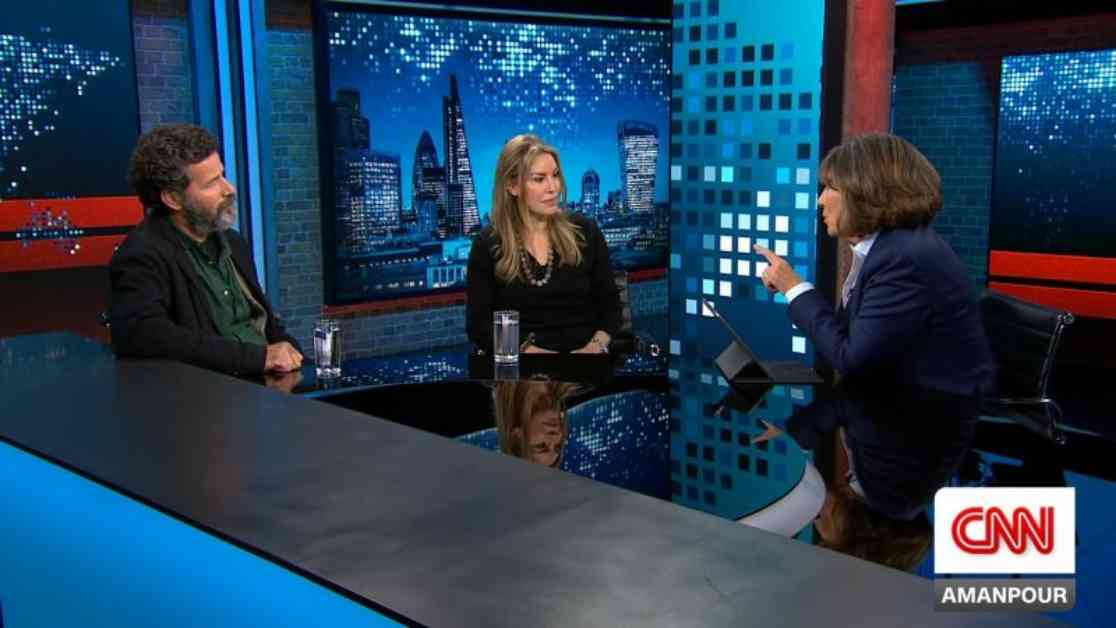Palestinian-British director Farah Nabulsi and actor Saleh Bakri recently sat down with journalist Christiane Amanpour to discuss their film “The Teacher,” which sheds light on the harsh realities faced by Palestinians living under Israeli occupation in the West Bank.
The film aims to capture the deeply human story of life in the West Bank, highlighting the everyday challenges and struggles that Palestinians endure. Through the lens of the characters in the film, viewers are able to witness the impact of the occupation on individuals and communities, offering a poignant and powerful portrayal of life under such circumstances.
During the interview, Nabulsi and Bakri shared their insights into the making of the film and the importance of bringing these stories to a wider audience. They emphasized the need to humanize the experiences of Palestinians living in the West Bank, shedding light on the complexities and difficulties they face on a daily basis.
Nabulsi, as the director, spoke about her personal connection to the region and her motivation to share these stories with the world. She highlighted the resilience and strength of the Palestinian people, despite the challenges they face, and expressed hope that the film would spark important conversations and reflections on the realities of life under occupation.
Bakri, who plays a key role in the film, shared his experiences working on set and the emotional impact of portraying such difficult and raw stories. He emphasized the importance of amplifying Palestinian voices and narratives, allowing for a more nuanced and compassionate understanding of the situation in the West Bank.
Overall, “The Teacher” serves as a powerful reminder of the human cost of the Israeli occupation in the West Bank. By capturing these deeply human stories, Nabulsi and Bakri hope to create empathy, awareness, and dialogue surrounding the realities faced by Palestinians in the region. Their film stands as a testament to the resilience, courage, and dignity of those living under occupation, and serves as a call to action for greater understanding and solidarity.




